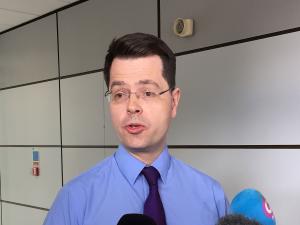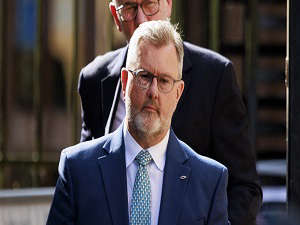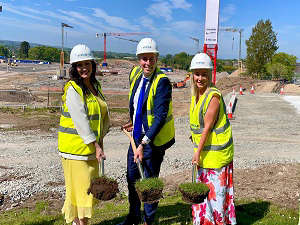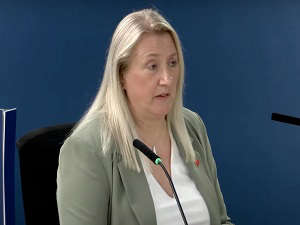
By Michael McHugh, Press Association
Laws will be fast-tracked through Parliament restoring Stormont power-sharing by early next month should agreement be clinched, the Northern Ireland Secretary said.
The forthcoming general election did not change the talks process involving the parties in Belfast and the UK and Irish Governments, James Brokenshire added.
Recent negotiations helped distil outstanding issues and identified possible areas for consensus, he added.
"Discussions between the parties, and the UK and Irish Governments, will continue, in accordance with the three-stranded approach.
"The prospect of a forthcoming UK general election does not change this approach."
It remained his intention to introduce legislation into Parliament addressing immediate requirements including setting a regional taxation rate to allow rates bills to be issued by councils.
"In addition, I believe it is also right to introduce provisions that would enable an Executive to be formed in early May should agreement be reached.
"To have this legislation in force in time, I will be requesting that its progress through Parliament be fast-tracked."
Talks to save devolved government were suspended before Easter with little prospect of a deal.
Sinn Fein had called for another Stormont poll if no accord is reached, the third in around a year, and the DUP have said they are ready to fight a snap election to the devolved institutions.
Two deadlines to form a new ruling executive have already fallen by the wayside.
Sinn Fein demands for legislative protections for Irish speakers, an end to the region's ban on gay marriage and the implementation of a Northern Ireland-specific bill of rights are among the issues of dispute.
Talks will reconvene, working to the new early May deadline.
Sinn Fein has accused the DUP of preventing the formation of a "rights-based" government.
The DUP has claimed Sinn Fein is focused only on the demands of its own supporters, and is failing to appreciate that others want movement on other issues.
The main unionist party hinted at a shift in approach to the Irish language last week when party leader Arlene Foster, who previously insisted she would never support an Irish Language Act, pledged to meet Gaelic speakers to hear their concerns.


 Rescue operation to free 40 cows after lorry overturns on motorway
Rescue operation to free 40 cows after lorry overturns on motorway
 New date set for trial of former DUP leader Jeffrey Donaldson and wife
New date set for trial of former DUP leader Jeffrey Donaldson and wife
 Shared education campus ‘symbolic’ in Northern Ireland’s reconciliation journey
Shared education campus ‘symbolic’ in Northern Ireland’s reconciliation journey
 Man jailed for seven years after crash which killed two teenagers
Man jailed for seven years after crash which killed two teenagers
 Couple died after Covid ‘taken into house by carers’, daughter tells inquiry
Couple died after Covid ‘taken into house by carers’, daughter tells inquiry